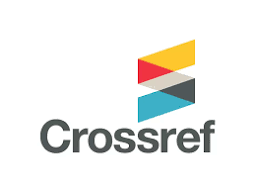Bacterial Spectrum and Susceptibility patterns of Pathogens in ICU and IMCU of a Secondary Care Hospital in Kingdom of Saudi Arabia
Keywords:
Drug resistance, Intensive care units, Susceptibility PatternsAbstract
Abstract
Objective: To evaluate the microbiological spectrum and susceptibility pattern of pathogens in intensive care unit
(ICU) and intermediate care unit (IMCU) in a single medical center from June 2011 to May 2012.
Study Design: Prospective descriptive study.
Place and duration of study: The study was carried out at the Department of Microbiology, King Abdullah
Hospital Bisha, Kingdom of Saudi Arabia over a period of 12 months from June 2011 to May 2012.
Materials and Methods: Antibiotic in vitro susceptibility data of predominant ICU and IMCU isolates during
2011–12 were analyzed using WHONET program.
Results: 335 Clinical isolates were analyzed. The frequencies of Gram-positive and Gram negative bacteria were
15 % and 85% respectively. Acinetobacter spp, Klebsiella species and Pseudomonas species were the most common Gram
negative isolates, while Staph. aureus and Coagulase-negative staphylococci (CoNS) were the two leading Gram
positive isolates. 81 % Acinetobacter spp were found Multidrug- Resistant. Three Acinetobacter spp were found pan
resistant. Extended-spectrum beta-lactamase (ESBL) producing Klebsiella Pneumoniae accounted for 57 % of all
Klebsiella species isolates. 29% Pseudomonas aeruginosa were found resistant to Imipenem.
Conclusion: The high incidence of reduced antibiotic susceptibility among Gram negative bacteria in ICUs
suggests that more effective strategies are needed to control the selection and spread of resistant organisms.
Downloads
Published
Issue
Section
License
Readers may “Share-copy and redistribute the material in any medium or format” and “Adapt-remix, transform, and build upon the material”. The readers must give appropriate credit to the source of the material and indicate if changes were made to the material. Readers may not use the material for commercial purpose. The readers may not apply legal terms or technological measures that legally restrict others from doing anything the license permits.

